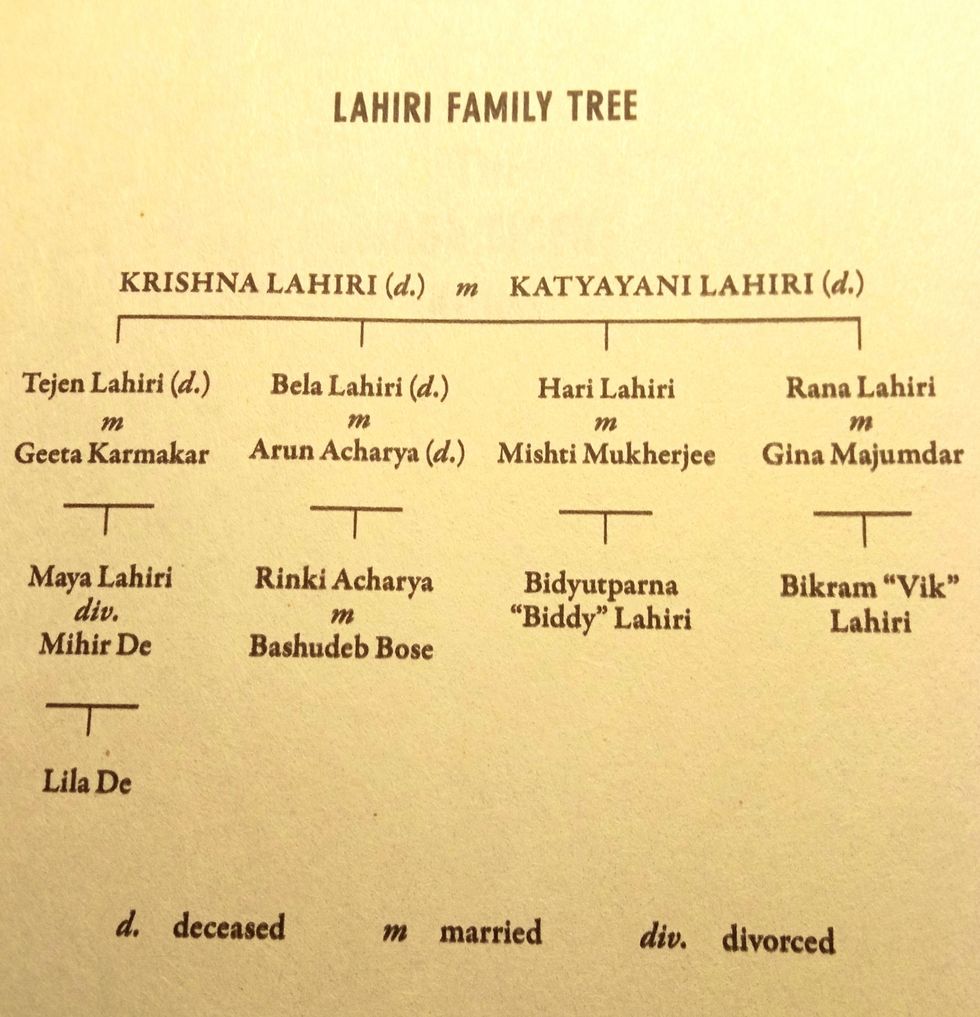NAYANTARA ROY, who lives in Los Angeles – where she has a satisfying creative job as a television executive – has been talking to Eastern Eye about her debut novel, The Magnificent Ruins.
Roy has been safe from the fires where she lives in Silverlake in the east side of the city. But she can see the orangetinged cloud in the sky – “the situation is still dire in LA”. Santa Monica, where she works, has been threatened.
Written in the first person, hers is a remarkable novel which bears comparison with Vikram Seth’s A Suitable Boy.
It’s essentially a tale of two cities the author knows intimately – Brooklyn in New York and Ballygunge, a wealthy residential suburb of Kolkata. The story is told by 29-year-old Lila De, a books editor in Brooklyn, who has recently been promoted to editorial co-director after her literary agency, Wyndham, is bought out by Phenom, a much larger firm owned by billionaire businessman Malcolm Aetos.
The opening paragraph of the novel explains why she must take eight weeks off to fly to Kolkata, the city of her birth, which she left at 16 to move to America and hasn’t seen in 13 years.
The story begins in Brooklyn in 2015: “In the middle of the summer, I inherited my grandfather’s house in India. There were five sprawling floors of it, home to my mother, my grandmother, and their extended family, eight thousand miles away from my apartment in Brooklyn.”
There is a helpful family tree at the start of the novel, which explains Lila’s place in the set-up. The Lahiris, who occupy 305/B in Ballygunge Place, are a “legacy family”. The building was put up in 1822. The Lahiris were once wealthy, but are now in decline as in Satyajit Ray’s Jalsaghar (The Music Room). They are cultured, but the older men don’t do any work, choosing to live off the interest from the family’s investment fund.

Lila has a fractious relationship with her mother, Maya Lahiri, a university professor, who lives on the fifth floor.
Lila has been left the property by her grandfather, Tejen Lahiri, whose widow, Geeta, loves her granddaughter, but hates her own daughter Maya. Lila calls her mother “Ma” and her grandmother, “Mummy”. They have a rivalry over who should give her dinner.
Incidentally, Maya’s marriage to Lila’s father, Mihir De, a lawyer, fell apart after a couple of years, causing a scandal in Kolkata. He now lives in Connecticut, with his American wife, Iva Lechner, and Lila’s half sister and brother, Robin and Avi. She gets on well with them, having lived in Connecticut after spending the first 16 years of her life with her mother in Kolkata.
Sometimes, her mother wouldn’t speak to Lila for months on end. “My doors are closed to you for ever” was a favourite phrase. Lila realises that “my mother’s love had always been hate, and I was filled with it, inescapably”. No wonder Lila was seeing a therapist, Dr Laramie, in New York.
The Kolkata household also includes Lila’s mercurial great uncle, Hari Lahiri, who is charming one minute and thinks nothing of beating up his wife, Mishti, the next. Their daughter, Bidyutparna (Biddy), who makes money from her You Tube channel, is due to be married. Hari is cruel to his brother, Rana, and contemptuous of his nephew, Bikram (“Vik”), who works for a leftwing magazine, New Statesman, in Kolkata, and is probably gay.
Vik went to Oxford, as did his grandfather. The reader is told: “When the British left India, they left behind a permanent taste for whiteness, combined with a simultaneous revulsion. This was still pronounced in Kolkata, but especially in the Lahiri household, whose ancestors had been the first results of the British desire to mould men who drank tea, played cricket, spoke English, were often Oxford-educated, and despite their brown skin, embodied the essence of Blighty.”
The magazine’s lawyer, Adil Sarkar, is now married to Silky, but Lila had a crush on him when they were teenagers.
The mansion has an additional floor, called “The Secret Sixth”, which is at the centre of a mystery at the end of the novel.
Lila leaves Brooklyn for Kolkata without telling one of her authors, Seth Schwartz, a Jewish man from the Upper West Side, with whom she has a personal relationship. He complicates matters by arriving uninvited in Kolkata, where Lila has resumed her childhood romance with Adil, but now as adults. Maya tells Adil’s mother what’s going on between Lila and her son. In Kolkata, Lila is told by Amlan Palekar, the lawyer her father had recommended: “The good news is that India abolished inheritance tax back in 1985 before you were even born.”
Kolkata’s iconic Howrah Bridge
And also: “Decency is the first casualty of large inheritances. It is the norm.”
And as Palekar has predicted, Hari, Geeta and other relatives hire their own lawyer to challenge the will on the grounds Tejen was not of sound mind when he left the mansion (now worth 5.9 crore rupees – close to a million dollars) to Lila. She hires Abhishek Roy, a construction engineer, to repair the mansion and return it to its former glory in time for Biddy’s wedding. She also has a German lift (“elevator”) installed because her grandmother has problems negotiating the steps.
The author’s attention to detail – the Bengali love of everything from chicken curry to bhindi, peyaj kolir chochori, keema cooked in cinnamon and mustard oil, pui shak, chingri and malai kofta, for example, and the fishmonger’s chant of “lobster, katla, bhetki, parshe” – and the nuances of family life make this a very special novel.
The author, known to her closest friends as “Tara” instead of Nayantara, has much in common with Lila, though it is not a disguised autobiography. Lila, Roy says, is a “lot more reckless”, adding with a laugh, “I think it would be much less interesting if the character was a lot like me.” The author’s father, Ashoke Roy, who travelled the world as a senior executive with United Breweries, and her mother, Arpita Roy, a teacher at La Martiniere for Girls School, still live in Kolkata.
“For the most part, my childhood was spent in Kolkata and so I am intimately familiar with the worlds of the book,” Roy points out. “I’m also intimately familiar with Brooklyn as a millennial woman who has lived there, but Kolkata I know like I know nothing else.”
Lila attended Columbia, as Roy did. After Pratt Memorial, a very English institution in Kolkata where a teacher, Zenobia Dalal, made her editor of the school magazine and encouraged her literary abilities, Roy wrote a few plays in Mumbai.
In her early 20s, she went to Columbia to study film and TV. After studying a tract called “Other people’s secrets”, she recalls that “what poured out of me was an essay about mother and a daughter, and that became the genesis of my novel”.
Lila is torn between Seth and Adil, but Roy says: “I don’t think that a relationship was uppermost for her, at least in these years. In a few years, she will be ready to consider the ramifications of an adult relationship. But at the moment, I think the real love story was between her and her mom.”
The Magificent Ruins has been published by Algonquin Books in the US, and in the UK by Hachette, which is also bringing it out in India. There is talk of a possible television adaptation of the novel.
Her second, Sisters of a Halved Heart, “the story of two sisters torn apart by a love affair”, is due to be published in spring 2026.
















 Naeli and the secret song
Naeli and the secret song
 A compelling premise, layered and unpredictable charactersAMG
A compelling premise, layered and unpredictable charactersAMG Anyone who enjoys a gripping story with a diverse cast and unexpected twistsHarperFiction
Anyone who enjoys a gripping story with a diverse cast and unexpected twistsHarperFiction
 He says "immigrants are the lifeblood of this country"Instagram/ itsmetawseef
He says "immigrants are the lifeblood of this country"Instagram/ itsmetawseef This book is, in a way, a love letter to how they raised meInstagram/ itsmetawseef
This book is, in a way, a love letter to how they raised meInstagram/ itsmetawseef
 Ram creates a global narrative tapestryOm Books International
Ram creates a global narrative tapestryOm Books International